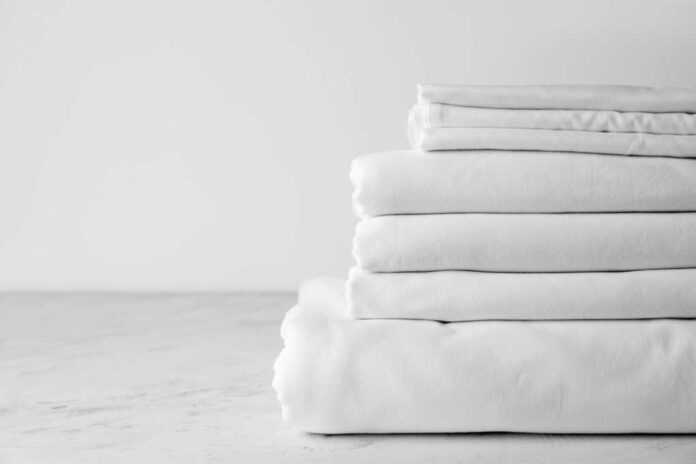
You spend approximately a third of your day in bed, so it’s important to make sure your sleeping environment is clean and comfortable. One simple way to do this is to change your bed sheets regularly. This helps keep your sheets clean and prevents the build-up of allergens, potential infections, and other irritating materials.
The Risks of Unclean Bed Sheets
Neglecting to change your bedsheets often enough can lead to a number of problems.
Your sheets can harbor fungi, pollen, animal dander, and more. On top of that, sweat, skin cells, and other bodily fluids can make your sheets a breeding ground for bacteria.
If you have allergies, asthma, or other respiratory problems, spending all that time in unclean sheets can worsen your symptoms. These irritants can also trigger eczema or contact dermatitis.
Soiled linens may also lead to the transmission of infectious diseases.
How Often Should You Clean Your Bed Sheets?
The standard rule of thumb is to wash your sheets once a week. But some factors may warrant more frequent washing, such as:
- allergies, asthma, or dust sensitivity
- eating in bed
- excessive sweating
- lesion or open wound
- not bathing before sleep
- pets on the bed
- sick with infection
- sleeping naked
There doesn’t appear to be any harm to washing your sheets more frequently, so it’s typically best to do it as often as possible.
Other Tips to Improve Sleep and Bed Hygiene
In addition to changing your sheets regularly, there are a few other things you can do to improve your nighttime hygiene:
- Keep your bedroom clean
- Vacuum your bedroom regularly
- Shower or bathe before going to bed, or napping
- Remove makeup before getting into bed
- Minimize use of lotions, creams, and oils before sleep
- Don’t eat or drink in bed
- Keep your pets off the bed
- Don’t get into bed with clothes you wore outside
- Wash bedding in hot water
- Use hypoallergenic or fragrance-free laundry detergent
- Replace pillows every 1-2 years
- Replace mattress every 5-7 years
By taking steps to improve your bed hygiene, you can enjoy a more comfortable and restful sleep. While it may take some extra effort, it’s worth it to keep your sleeping environment clean and free of potential irritants.






















